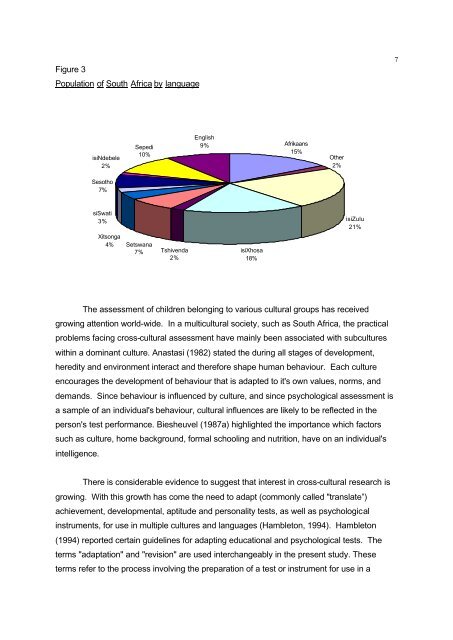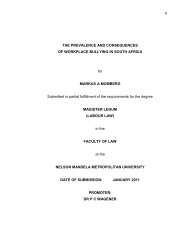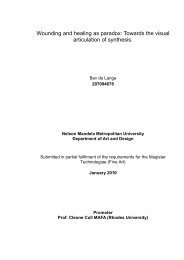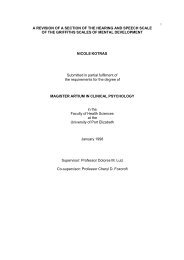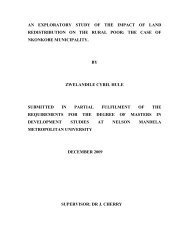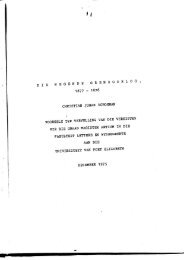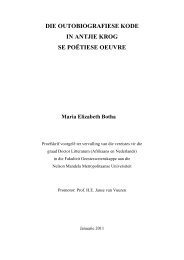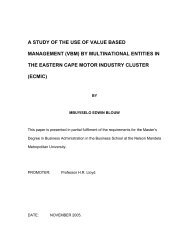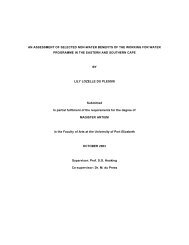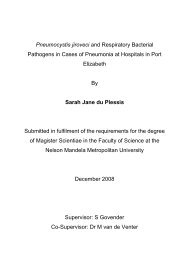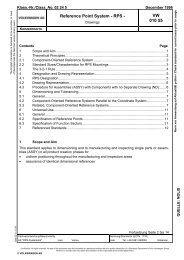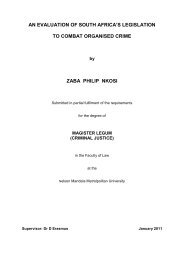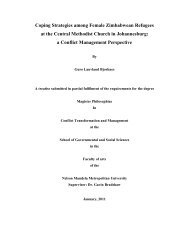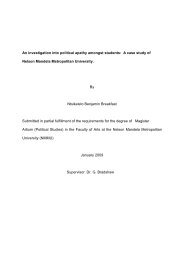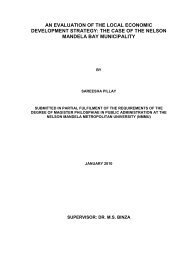nicole kotras masters thesis
nicole kotras masters thesis
nicole kotras masters thesis
You also want an ePaper? Increase the reach of your titles
YUMPU automatically turns print PDFs into web optimized ePapers that Google loves.
Figure 3<br />
Population of South Africa by language<br />
The assessment of children belonging to various cultural groups has received<br />
growing attention world-wide. In a multicultural society, such as South Africa, the practical<br />
problems facing cross-cultural assessment have mainly been associated with subcultures<br />
within a dominant culture. Anastasi (1982) stated the during all stages of development,<br />
heredity and environment interact and therefore shape human behaviour. Each culture<br />
encourages the development of behaviour that is adapted to it's own values, norms, and<br />
demands. Since behaviour is influenced by culture, and since psychological assessment is<br />
a sample of an individual's behaviour, cultural influences are likely to be reflected in the<br />
person's test performance. Biesheuvel (1987a) highlighted the importance which factors<br />
such as culture, home background, formal schooling and nutrition, have on an individual's<br />
intelligence.<br />
isiNdebele<br />
2%<br />
Sesotho<br />
7%<br />
siSwati<br />
3%<br />
Sepedi<br />
10%<br />
Xitsonga<br />
4% Setswana<br />
7%<br />
Tshivenda<br />
2%<br />
English<br />
9%<br />
isiXhosa<br />
18%<br />
Afrikaans<br />
15%<br />
There is considerable evidence to suggest that interest in cross-cultural research is<br />
growing. With this growth has come the need to adapt (commonly called "translate”)<br />
achievement, developmental, aptitude and personality tests, as well as psychological<br />
instruments, for use in multiple cultures and languages (Hambleton, 1994). Hambleton<br />
(1994) reported certain guidelines for adapting educational and psychological tests. The<br />
terms "adaptation" and "revision" are used interchangeably in the present study. These<br />
terms refer to the process involving the preparation of a test or instrument for use in a<br />
Other<br />
2%<br />
isiZulu<br />
21%<br />
7


